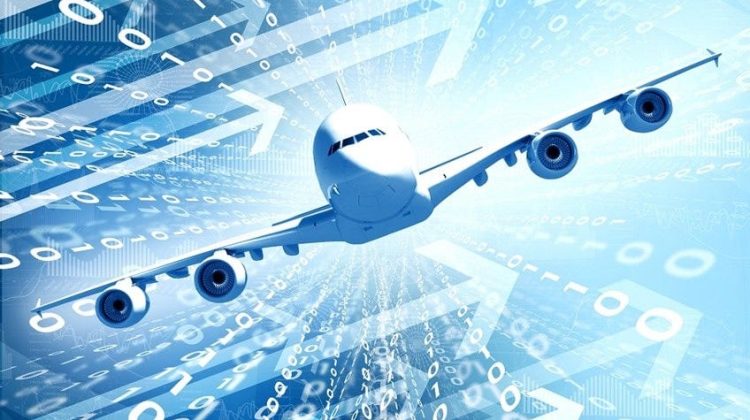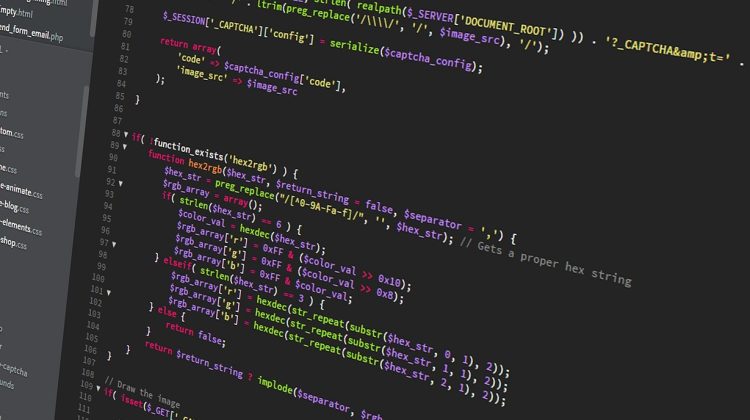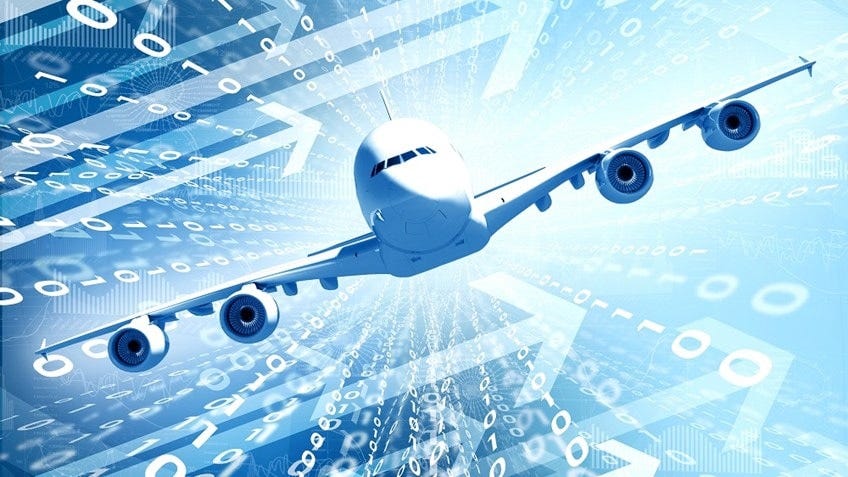The aviation business is highly regulated and is required to provide services that are mission-critical and have no room for error. But the ecosystem is made even more complex by the existence of several stakeholders and industry actors. Consumers, airport authorities, aviation industry partners including IATA, travel brokers, GDSs (Global Distribution Systems), suppliers, service providers, public authorities, and a long list of other parties are among the stakeholders. As a result, airline firms must contend with issues including high fixed costs, coordination and management problems, as well as the need to provide top-notch services.
In order to guarantee faultless airline operations, transparency, trust, control, and security are essential. The current approach, meanwhile, has some drawbacks. A strong system that would guarantee transparency and traceability of airline operations in any situation was required in light of this occurrence.
Blockchain Use Cases & Business Benefits In The Aviation Sector
For the aviation sector, blockchain solutions “come” with disruptive features like transparency, immutability, decentralization, traceability, and top-notch security. Let’s examine how Blockchain improves the effectiveness of flight operations, helps airline authorities save time and money, and overcomes numerous issues that exist in the aviation industry.
Aircraft Inspection And Maintenance
The configuration of an aircraft’s parts, routine inspections, maintenance, handling warranties, and loan order administration become visible & traceable like never before thanks to blockchain technology.
Problem
It is usual for passengers to experience challenges as a result of aircraft delays caused by maintenance problems. The loss or destruction of inspection or maintenance data, however, might sometimes make such issues unavoidable. Today’s airline firms must monitor vital aviation information about the state of their aircraft.
Use Cases
An airplane’s parts can be repaired as often as necessary. The upper assembly components are typically left intact while the lower assembly components are modified or discarded. Therefore, it’s crucial to track airplane parts throughout their full lifecycle in order to securely record information on ownership history, modifications, maintenance information, etc.
An airplane’s installation, removal, inspection, and servicing of each part and component are tracked and recorded using blockchain technology. Blockchain keeps track of details like the time spent performing maintenance and even the identity, credentials, and location of the technician who fixed a certain component. The logs are updated frequently. Every component of the aircraft can then have a digital “birth certificate.”
A “digital twin” of the airplane can be created by combining all of this data. From the moment the Airbus started operating until it was withdrawn from the fleet, all information pertaining to the history of parts, maintenance, inspection, and warranty would be recorded. By doing this, airline firms are able to track every important factor, including changes made to the assemblies, ownership changes of particular sub-assemblies, compliance with regulations, etc. They also gain detailed visibility into the lower and upper assemblies. Airlines benefit from having access to such reliable information about aircraft parts when reporting critically and when buying or selling aircraft parts.
By streamlining crucial activities, blockchain solutions assist authorities in managing the compliance of airplane parts and maintenance plans. These activities would involve writing down the inspection’s results, requesting additional inspections, making repair orders for broken items, and many others.
One of the trickiest transactions that take place between MROs and operators is a loan order. The management of warranties is another important factor where there is a potential for income leaks. Airline firms are utilizing blockchain-powered immutable networks to keep the terms and conditions of loan orders, warranty statements, and payouts.
Advantages
Better visibility of an aircraft’s configuration and maintenance history is made possible by blockchain implementation. The end result is a more anticipatory maintenance system that enables administrators to remove obstacles well before these problems have an impact on the airline’s operations. There are very few occasions when maintenance problems result in flight delays that affect passengers. Overall productivity increases and airline businesses are better able to control costs and losses brought on by unscheduled maintenance or downtime. Additionally, airline owners can deal with third parties like mercenary retailers successfully because every aircraft part’s serial number may be checked against an impermeable real-time ownership record.
Aviation Data Real-Time Capture & Secure Storage
Problem
For airline authorities, monitoring lost or stolen cargo or baggage is a difficult and time-consuming task. Long wait times and even defective goods can be inconvenient for customers. The requirement to record technical data related to flights is essential for guaranteeing flight safety and gathering information in the event of an accident. Centralized data storage systems, however, are susceptible to hacks and data loss.
Use Cases & Benefits
A single flight’s real-time data can be tracked and recorded by airline authorities using blockchain. This greatly increases visibility and transparency. Blockchain stores data regarding valuable elements and assets that are essential to flight operations, such as flight trajectories, onboard passenger information, baggage & cargo onboarding, etc. An additional degree of protection is added and the data is rendered unchangeable through a blockchain-based data backup system. Authorities can diagnose aircraft problems and conduct rescue operations in the event of crashes thanks to real-time data gathering and safe data storage. Blockchain technology is also useful for finding goods and luggage. From the moment products are deposited at the counter until they are returned to their proper owner, the location and current condition of those goods will be tracked. As a result, cargo tracking will be simple and quick for both passengers and authorities.
Identity Verification & Smart Ticketing
Problem
A unified database is essential to the airline industry’s entire ticketing system. Additionally, when a system outage affects an airport’s or an airline’s ticketing database, there is a great deal of chaos and a high likelihood of mistakes. Additionally, there are lengthy lines and a lot of hassles associated with passenger identity verification at airports. Additionally, there are security vulnerabilities as a result of the existing verification systems’ inability to always detect passengers who use false identities.
Use Cases & Benefits
The simple solution is to switch out paper tickets with smart tickets. Even though smart ticketing is still in the future, once it is used, it will revolutionize the industry. In addition to the airlines, other stakeholders can take part in a unified booking system that blockchain developers can design.
Passenger biometric information, documentation, and tickets are stored on a blockchain network’s immutable ledger. This strategy also makes the process of confirming travelers’ identities simpler and can put an end to problems with document verification. Instead of filling out additional forms or bringing identification to the airport, passengers will only need to enter using a verification code. Additionally, the issue of fake identities will be successfully solved through biometric identification methods. This is due to the decentralized structure of Blockchain, which makes it impossible to alter or tamper with passenger identity once it has been recorded.
Smart tickets can also be used to integrate non-airline utility services like hotel reservations, transportation, and other non-airline amenities like lounge access, business class privileges, etc. By doing this, the inefficiencies that airline firms have when customers want additional services will be resolved.
Smart Contracts
Problem
Airlines must deal with numerous other parties and must spend time and resources on such time-consuming and repetitive procedures. Additionally, there is a risk of human mistakes and party conflicts.
Use Cases & Benefits
In order to carry out transactional agreements with other airline businesses and travel agents, offer travel insurance, pay airport fees or taxes, and determine loyalty settlements, airlines use smart contracts. When numerous parties, such as supply chain operators, MROs, etc. are involved in transactional agreements, a smart contract is a great choice for automatically validating those agreements. This aids airline authorities in reaching an understanding with several stakeholders and preventing problems that would probably arise in a centralized legacy system.
Smart contract development services in UAE can also save airlines time and the headaches of laborious reconciliation processes to rectify aberrant transactions. They also reduce the possibility of human error.
Final Reflections:
Aviation blockchain holds forth the hope of a better future! To fully utilize Blockchain’s potential, one must apply it according to the correct procedures and tactics. Here is how to begin implementing blockchain in aviation services. Start with a single system or process. The next step is to gather all of your stakeholders into a Blockchain ecosystem. The guidelines for participation, governance, audit systems, etc. will be established by this peer-to-peer network. As you negotiate regulatory uncertainty, keep in mind to prioritize cybersecurity, follow standard compliances, develop audit procedures, and adhere to compliance standards.












No Comment